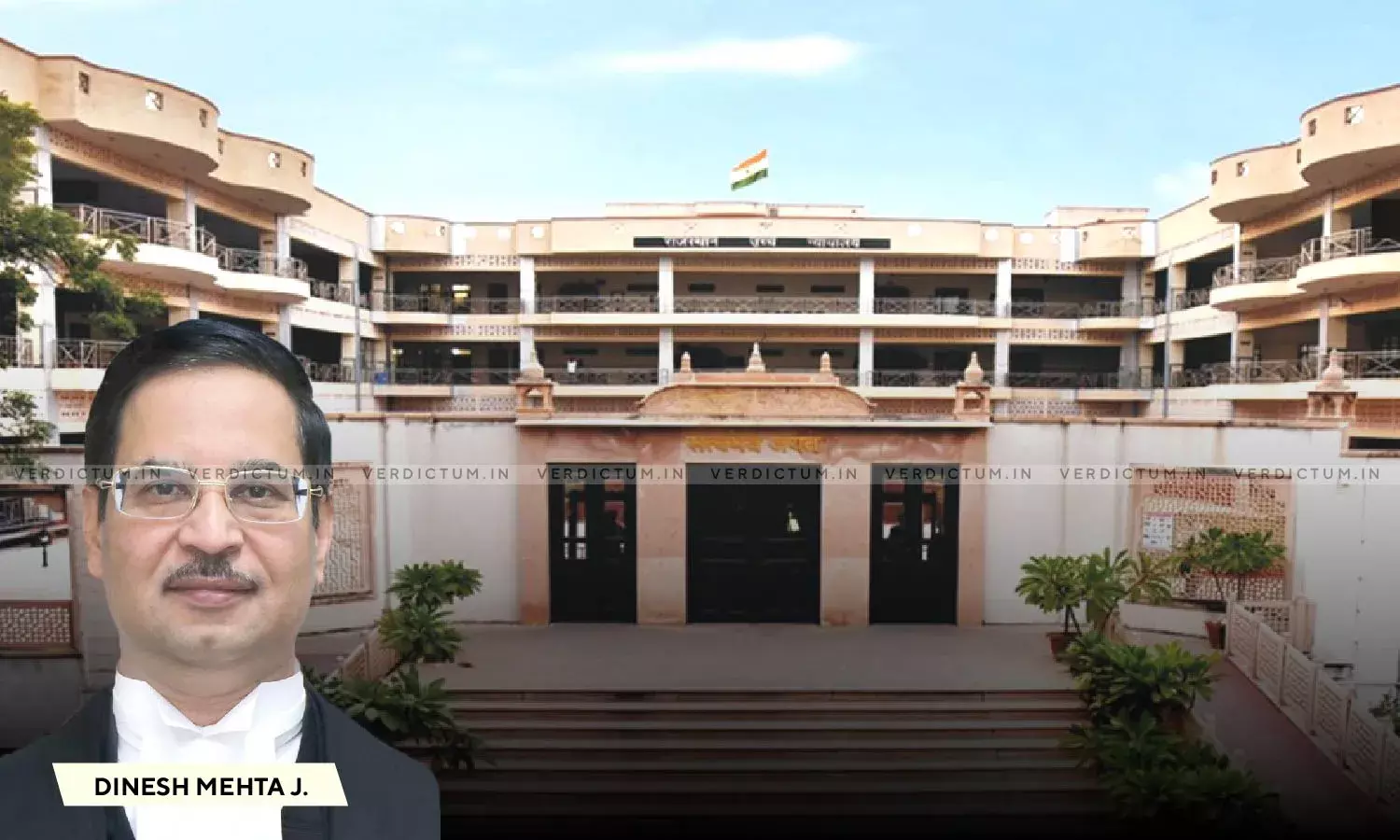Recruitment Of Forest Guard| Chest Measurement Criteria For Female Candidates Is Arbitrary And Outrageous: Rajasthan HC

The Rajasthan High Court expressed its deep shock after coming across the parameters laid down by the respondents for ascertaining physical standards of women candidates for the recruitment to Forest Guard post. The Court observed that the act of setting up chest measurement to be a criterion, particularly for female candidates, was absolutely arbitrary, rather outrageous.
The Bench of Justice Dinesh Mehta observed:
“This Court is perturbed by the lack of sensitivity exibited by the administrative authorities while formulating the hiring policy/Rules. Not only does it appear to be scientifically unfounded, but also immodest. Furthermore, when the yardstick of minimum chest size is not provided for other government jobs involving comparable or more physical activity (such as Police Constables), one does not see any rhyme or reason behind the criterion in question, particularly for female candidates.”
In this case, a writ petition was filed by three petitioners who were challenging the decision of the respondents to reject them during the Physical Standard Test (PST) for the position of Forest Guard, based on chest measurement parameters. The petitioners had cleared the written examination but were disqualified during the PST due to their chest measurements not meeting the set standards, even though they had passed the Physical Efficiency Test.
Advocate Amit Gour appeared for the Petitioners and Advocate Digvijay Singh Jasol appeared for the Respondents.
The petitioners approached the Court claiming that their chest measurements were within the norms despite no medical report from another government hospital being submitted. An interim order was granted in their favor by a Coordinate Bench of the Court on July 26, 2023, instructing the All India Institute of Medical Sciences, Jodhpur, to form a Medical Board and assess the chest measurements of the petitioners.
The Court perused the reports sent by AIIMS, Jodhpur and observed that petitioner Nos.1 and 2 had chest measurements and expansions below the specified norms, while petitioner No.3 had measurements above the norm but expansion below 5 cm. The Court concluded that the petitioners did not meet the set parameters and dismissed their petition, along with a stay petition they had filed.
The Court said that the recruitment was over and all the candidates including the petitioners herein had subjected themselves to such test thus it would not disturb the recruitment which has taken place. However, the Court expressed deep concern and dissatisfaction with the standards set by the respondents for evaluating the physical standards of female candidates. It criticized the practice of using chest measurements, particularly for female candidates, calling it arbitrary, outrageous, and a violation of a woman's dignity and privacy protected under Articles 14 and 21 of the Indian Constitution.
“this Court is unable to come over the shock, it got on seeing the parameters laid down by the respondents for ascertaining physical standards of women candidates. This Court cannot, but refrain from observing that the respondents’ act of setting up chest measurement to be a criterion, particularly for female candidates, is absolutely arbitrary, rather outrageous to say the least. It is a clear dent on a lady’s dignity and right of privacy guaranteed under Articles 14 and 21 of the Constitution of India.”
The Court highlighted that chest size and expansion are not necessarily indicators of physical fitness or lung capacity. It criticized the practice for being irrational, intruding on privacy, and undermining the dignity, autonomy, and mental well-being of women. It further pointed out the absence of such criteria for other government jobs like Police Constables involving physical activity and questioned the scientific validity and rationale behind the chest measurement criterion.
“Apart from being irrational, prescribing such criterion disrupts the dignity, bodily autonomy and mental integrity of a woman.”
The Court suggested that a woman's chest size is irrelevant in determining her physical strength and recommended exploring alternative means to assess lung capacity without causing unnecessary humiliation to women candidates.
“the size of a woman’s chest is irrelevant for the purposes of determining her strength. The qualifying criteria is based on incorrect assumptions that having a minimum chest girth would ensure the physical fitness of a woman. The practice adopted, apart from lacking any scientific validity, is humiliating, derogatory and an affront to a woman’s dignity.”
The Court called on administrative authorities to re-evaluate the criterion and seek expert opinions to develop more appropriate standards. The Court's order was directed to be conveyed to relevant government departments for reconsideration and potential revision of the criteria.
Cause Title: Vandana Kanwar & Ors. v. State of Rajasthan & Anr.

